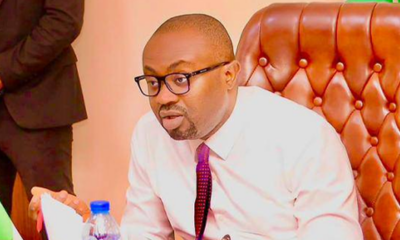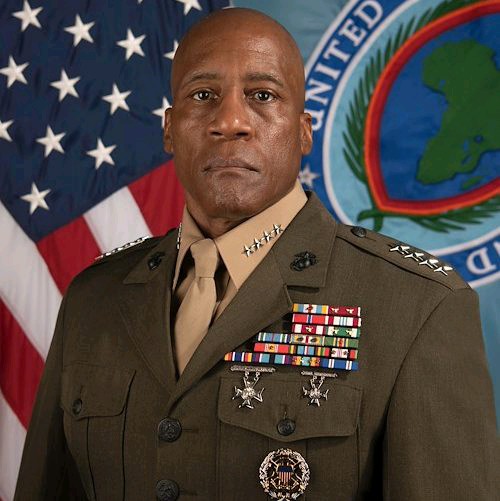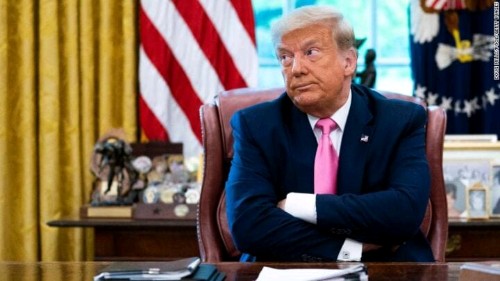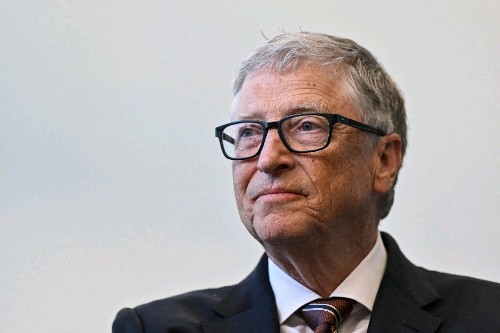The head of the United States Africa Command, Gen Michael Langley, has expressed concerns about increasing attempts by extremist and terrorist groups operating in the Sahel to reach the West African coastline.
Langley described recent violent incidents in Nigeria, the Sahel region, and the Lake Chad Basin as alarming, cautioning that if terrorists gain access to coastal areas, it would greatly enhance their abilities to traffic weapons and smuggle goods.
Mali, Burkina Faso, and Niger, all located in the Sahel, are seen as central hubs of terrorist activity, with Burkina Faso especially experiencing deep-rooted insurgent networks linked to ISIS and Al-Qaeda.
The 2025 Global Terrorism Index, released by the Institute for Economics and Peace, shows that the Sahel was responsible for 19 percent of all terrorist incidents globally and 51 percent of terrorism-related deaths in 2024, an increase from 48 percent in 2023.
Out of the 10 countries most impacted by terrorism, five are located within the Sahel region.
During a weekend press briefing, Langley said the US was increasingly worried that terrorists gaining coastal access would not only endanger African countries but also elevate risks to American interests.
“Attacks are resurging in the Lake Chad region as well, and extremist groups are growing more aggressive. The recent attacks in Nigeria and across the Sahel are deeply concerning.
“The scale and brutality of some of these incidents are troubling. So we’re monitoring this closely.
“One of the terrorists’ new objectives is gaining access to West African coasts. If they secure access to the coastline, they can finance their operations through smuggling, human trafficking, and arms trading.
“This puts not just African nations at risk, but also increases the chance of threats reaching the US shores,” Langley stated.
He made these remarks while addressing the media during the African Chiefs of Defence Conference held from May 28 to 29, 2025, in Nairobi, Kenya.
The conference gathered top military leaders from 37 African countries, along with US defense representatives.
Langley encouraged key coastal nations like Ghana, Côte d’Ivoire, and Benin to stand strong along their northern borders to stop terrorist movements.
He emphasized the US’ backing for coastal nations, stating, “That’s why our coastal partners – Ghana, Côte d’Ivoire, and Benin – are fighting fiercely along their northern borders to prevent terrorist expansion, and US AFRICOM is standing with them.”
Langley admitted that reduced US troop presence in some parts of Africa had limited America’s ability to keep a close watch on terrorist activities.
Still, he stressed the US remains committed to its counterterrorism alliances while honoring each nation’s right to sovereignty.
“We respect nation sovereignty and only go where we’re asked as long as it aligns with U.S. national security objectives,” he said.
Reflecting on his visit to Nigeria in November 2024, Langley said the trip allowed him to observe firsthand how the US supports Nigerian military operations.
“During my visit, I sat with Nigerian defence leaders to understand how we can help. The US acts with its partners—and in Nigeria’s case, we work together to combat Boko Haram and ISIS West Africa in pursuit of regional security,” he said.
He affirmed that the US remains dedicated to assisting one of the region’s strongest military forces—Nigeria’s—despite having scaled back its physical presence.
“We are committed to supporting one of the most capable militaries in the region—Nigeria’s. Although our withdrawal has reduced our ability to monitor some developments directly, we maintain strong liaison and provide support where possible,” he added.
Langley also commented on America’s continued outreach to Burkina Faso, despite diplomatic challenges.
“The US seeks opportunities to collaborate with Burkina Faso on counterterrorism challenges. I invited Burkina Faso’s chief of defence to the African Chiefs of Defence Conference because I believe in maintaining that dialogue. So it’s still open,” he said.
Speaking about East Africa, he noted AFRICOM had ramped up operations in Somalia.
“At the request of the Somali government, we’ve conducted over 25 airstrikes this year alone—twice as many as last year—targeting jihadist groups,” Langley revealed.
Langley praised the growing independence of African armed forces, noting their proactive approach to addressing their own security issues.
“African militaries are not waiting to be saved. African militaries are taking on security challenges head-on, and leverage opportunities for their nations to achieve stability and prosperity.
“So right now, as I speak to you, they continue to step up and take control of their futures,” he said.
He highlighted that AFRICOM’s strategy is focused on building enduring partnerships rather than fostering dependence.
“Our goal is to deepen partnerships that empower African nations to solve African problems—not with handouts, but through trusted collaboration,” Langley said.
“A safe, stable, and prosperous Africa is not a charitable goal. It’s a strategic necessity for the United States and our African partners,” he added.
Langley explained that across the continent, joint military drills are now aimed at increasing self-sufficiency, coordination, and emergency preparedness among African forces.
He stated that AFRICOM continues to aid African military forces through advanced training and intelligence exchange, while also advocating stronger ties with local communities.
“We are not just helping build military capacity; we’re helping create the stability that underpins African and American prosperity alike.
“AFRICOM is increasingly focused on helping our partners address the root causes of terrorism—instability at the local level—through intelligence sharing, capacity building, and institutional strengthening,” he said.
He summed up AFRICOM’s mission with a three-word phrase.
“AFRICOM aims to support African nations in building the self-reliance needed to confront terrorism and insurgency by assisting in building strong, capable military and security forces.
“Our partnership is summed up in three words: peace through strength. Strong partnerships are the best representation of that thought because we’re always stronger when we stand together,” Langley said.

 BIG STORY2 days ago
BIG STORY2 days ago
 BIG STORY3 days ago
BIG STORY3 days ago
 BIG STORY3 days ago
BIG STORY3 days ago
 BIG STORY2 days ago
BIG STORY2 days ago
 BIG STORY1 day ago
BIG STORY1 day ago
 BIG STORY3 days ago
BIG STORY3 days ago
 BIG STORY2 days ago
BIG STORY2 days ago
 BIG STORY1 day ago
BIG STORY1 day ago
























